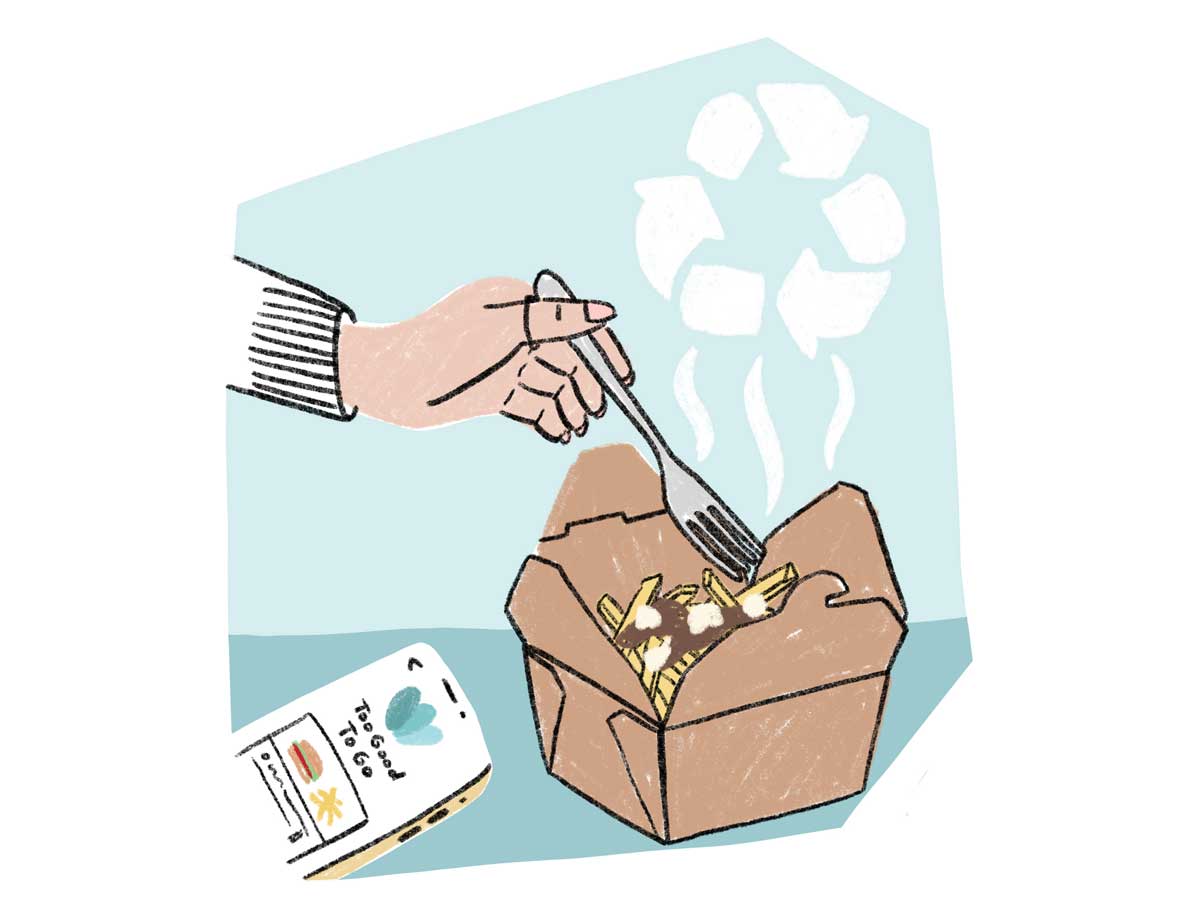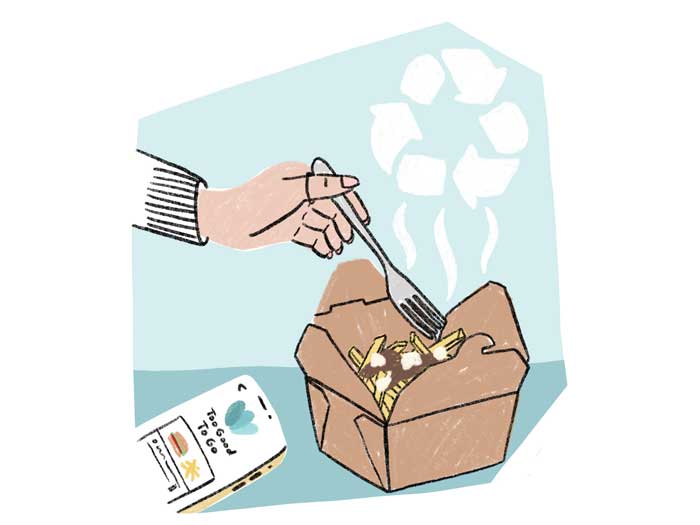
How a new app is helping to save food from the trash can
 Too Good To Go has salvaged more than 105 million meals to date (Illustration by Leeandra Cianci)
Too Good To Go has salvaged more than 105 million meals to date (Illustration by Leeandra Cianci)
Canadians throw out a lot of food—35.5 million tonnes each year. And we are hardly unique in our wastefulness, contributing to a global issue with major implications on our planet’s well-being. “Food waste accounts for 10 per cent of all greenhouse gas emissions,” says Sam Kashani, country manager of the Canadian arm of the world’s most popular anti-food waste app, Too Good To Go, which allows restaurants and grocery stores to sell off their surplus food for about one-third of the retail value.
Globally, Too Good To Go has more than 48 million users and 128,000 retailers who participate. According to the company, to date it has salvaged more than 105 million meals and counting. Too Good To Go was founded in Denmark in 2015, and expanded into 17 countries before launching in Canada in July 2021—first in Toronto, followed by Vancouver and Montreal. Though the Canadian operation’s details aren’t public, Kashani says they have more than 1,000 stores participating and many restaurants came on board in late 2021. “The reception has been incredible,” he says. “It’s really growing week after week and we’re seeing true exponential growth.”
For restaurants and consumers alike, it isn’t difficult to see the appeal.
Christine Trinh, who runs a second-hand children’s clothing store in Toronto, saw ads for Too Good To Go on social media and was attracted to the business model. “The main appeal is that the concept resonated with me; it’s a business that is good for our planet, but also one that makes sense for the customer,” she says. Trinh quickly became a regular, ordering through the app half a dozen times in her first month as a user. She says she likes the food, and the experience of using it. When placing an order, customers don’t know what exactly they will receive. Participating eateries package their food as themed “surprise bags” that contain anything from pastries to produce or prepared foods like sandwiches or sushi. “You feel like you scored something [when you pick up your package],” she says.
Kashani says the app is a win-win-win proposition. “The consumer gets an incredible value—that same sandwich, pizza or groceries for a fraction of the cost. And the store wins, because they drive incremental traffic to their stores and they cover their food costs at a minimum. And there isn’t another meal thrown out, which is an environmental win and fights climate change,” he says. Of course, the business itself wins as well—it takes a cut of all transactions.
The app is a for-profit enterprise that funnels profits into expansion, with operations either underway or in the works in most major North American cities. It is also a certified B-Corp, a for-profit company that prioritizes having a positive social and environmental impact.
Environmentally driven companies such as Too Good To Go are finding success partly because consumers support their missions, says Rosemary McGuire, CPA Canada’s director of external reporting, research, guidance and support. “Consumers want to associate and buy from brands that they feel are aligned with their own social values,” says McGuire, who adds that, as an employer, it may be easier to be competitive if you’re a company with a social mission. “Younger employees want to work for companies that espouse the same values that they do—purpose-driven organizations—and we’re seeing, especially in the sustainability realm, a huge war for talent.”
The business has waded into advocacy work too, pushing for change around how food is labelled (particularly when it comes to expiry dates) and working to promote the importance of food-waste reduction. The company has partnered with food banks like Daily Bread to promote the cause and plans to participate in educational programs at schools across the country.
McGuire says the frequency of climate-change related disasters, like the recent B.C. floods, has kept environmental issues top of mind, as have the residual effects of COVID-19. “There was recognition of the impacts of not commuting, the issues around treatment of workers, and the broader focus on public health and safety,” she says. “That just really accelerated the idea that we can’t go back to the way we were doing things before.”
KEEP IT GREEN
Read about the Canadian-made vegan outerwear brand, the eco-friendly accessories made from produce and the lab-grown diamonds that are changing the market.